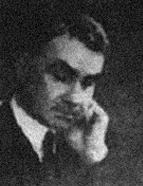

In the words of João Serras e Silva, as “in sociology, in history intuition and common sense often lead to absurd explanations. Social laws, repercussions, coexistences, social formation provide means of interpreting historical facts that historians do not usually possess. It is not enough to have the fact; no science is satisfied with facts alone; an operation of the mind is needed to connect and explain these facts. Facts are necessary, indispensable; no science can be constituted without them. But, although necessary, they are not sufficient [...].
“History does not give us an exact reconstruction of a society or an institution, it does not describe the evolution of that society or institution because it lacks the means; there are no documents. The best documents are those concerning private life, and these do not exist. That is why history will always be an imperfect science, inferior to the natural sciences. However, social science, taking advantage of what exists and applying its discoveries — causal laws and laws of coexistence — obtained from the observation of present-day peoples, can considerably advance our knowledge of the past.” (SILVA, João Serras e, “A história à luz da sciência social” [History in the light of social science], Biblos, vol. II, 1926, pp. 486 and 528.)
Like António Sérgio and Jaime Cortesão, for example, João Serras e Silva proposed a sociological reading of the “Portuguese expansion” — its antecedents and corresponding implications — both in the “Metropolis” and the “Adjacent Islands” and in the “Colonies”. He compared the virtues and limitations of Iberian developments with the successes of the British, French and Dutch models. He used concepts such as “transport policy” and “settlement policy”, “responsibility of the elites” and “education of the working classes”. After 1932/1933, the History of Portuguese Discoveries and Colonisation returned, for many academic years, to being studied as a collection of empirical information, “personalities”, “events” and value judgements on the “glory” or “decline” of Portugal.
This work is financed by national funds through FCT - Foundation for Science and Technology, I.P, in the scope of the projects UIDB/04311/2020 and UIDP/04311/2020.
